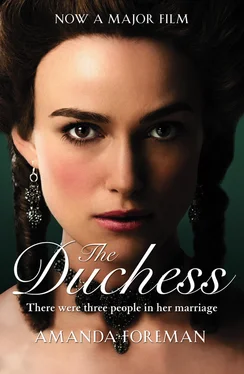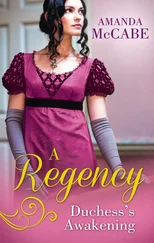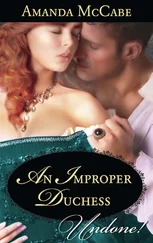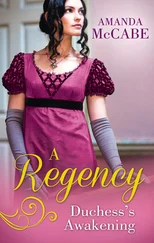Georgiana’s education reflected her parents’ idea of a sound upbringing. During the week a succession of experts trooped up and down the grand staircase to the bare schoolroom overlooking the courtyard. There, for most of the day, Georgiana studied a range of subjects, both feminine (deportment and harp-playing) and practical (geography and languages). The aim was to make her polished but not overly educated. The royal drawing-master and miniaturist John Gresse taught her drawing. The composer Thomas Linley, later father-in-law to the playwright Richard Sheridan, gave her singing lessons. The distinguished orientalist Sir William Jones, who was preparing her brother George for Harrow, taught her writing. She also learned French, Latin, Italian, dancing and horsemanship. 18 Everything came easily to her, but what delighted Georgiana’s mother in particular was her quick grasp of etiquette. Lady Spencer’s own upbringing as a courtier’s daughter made her keenly critical of Georgiana’s comportment in public; it was almost the only basis, apart from religion, on which she judged her, praised her and directed her training.
Lady Spencer’s emphasis on acquiring social skills encouraged the performer in Georgiana. In quiet moments she would curl up in a window seat in the nursery and compose little poems and stories to be recited after dinner. She loved to put on an ‘evening’ and entertain her family with dramatic playlets featuring heroines in need of rescue. While Georgiana bathed in the limelight, George concentrated on being the dependable, sensible child who could be relied upon to remember instructions. Harriet, despite being the youngest, enjoyed the least attention of all. Perhaps in another family her obvious sensitivity and intelligence would have marked her out as a special child. But with a precocious and amusing sister and model brother, the shy Harriet shruggled to attract her parents’ notice. She attached herself to Georgiana, content to worship her and perform the duties of a faithful lieutenant. Even here poor Harriet often had to compete with George. He was proud of Georgiana’s talent and at Harrow would show round the verse letters he had received from her. ‘By this time there is not an old Dowager in or about Richmond that has not a copy of them; there’s honour for you!’ he informed her. On one occasion he imagined the two of them achieving fame by publishing her letters under the title, ‘An epistle from a young lady of quality abroad to her Brother at School in England’. 19
Georgiana could think of nothing more delightful than a public exhibition of her writing. Despite being the clear favourite of the family she was anxious and attention-seeking, constantly concerned about disappointing her parents. ‘Although I can’t write as well as my brother,’ she told them plaintively when she was seven, ‘I love you very much and him just as much.’ 20 Adults never failed to be charmed by Georgiana’s lively and perceptive conversation and yet she valued their praise only if it made an impression on her mother and father. Her ability to attract notice pleased Lady Spencer as much as its origins puzzled her: ‘Without being handsome or having a single good feature in her face,’ she remarked to a friend, ‘[she is] one of the most showy girls I ever saw.’ 21 Lady Spencer never understood her daughter’s need for attention or its effect on her development. In later years, when forced to examine her part in Georgiana’s misfortunes, she blamed herself for having been too lenient a parent.
In 1763, when Georgiana was six, the stability she had enjoyed came to an abrupt end when the Spencers embarked on a grand tour. Lord Spencer had trouble with his lungs and his invalid condition made him bad tempered. Lady Spencer, worn down by his moods, urged him to rest and heal in the warmer climate of the Continent. Most of their friends were going abroad. Britain had been at war with France for the previous seven years and, although the fighting had largely taken place in outposts – in Canada, India and the Caribbean – visits across the Channel were severely curtailed. With the advent of peace, travel became possible again and the English aristocracy could indulge in its favourite pastime: visiting ‘the sights’.
Georgiana accompanied her parents while George and Harriet, both considered too young to undertake such a long journey, stayed behind. The Spencers’ first stop was Spa, in what is now Belgium, in the Ardennes forest. Its natural warm springs and pastoral scenery made it a fashionable watering place among the European nobility, who came to drink the waters and bathe in the artificially constructed pools. But Lady Spencer’s hopes that its gentle atmosphere would soothe her husband’s nerves were disappointed. A friend who stayed with them for a short while described the visit as one of the worst he had ever made: ‘If you ask me really whether I had a great deal of pleasure in it I must be forced to answer in the negative. Lord S’s unhappy disposition to look always on the worst side of things, and if he does not find a subject for fretting to make one, rendered both himself and his company insensible to much of the satisfaction which the circumstances of our journey might have occasioned us.’ 22
Undaunted, Lady Spencer decided they should try Italy. She wrote to her mother in July and asked her to come out to Spa to look after Georgiana while they were away. She admitted that she was leaving Georgiana behind ‘with some difficulty’, but she had always placed her role as a wife before that of motherhood. For Georgiana, already missing her siblings, her mother’s sudden and inexplicable abandonment was a profound shock. ‘Miss Spencer told me today she lov’d me very well but did not like to stay with me without her mama,’ her grandmother recorded in her diary. 23 For the next twelve months Georgiana lived in Antwerp with her grandmother, who supervised her education. Believing, perhaps, that her parents had left her behind as a punishment for some unnamed misdeed, Georgiana became acutely self-conscious and anxious to please. She imitated her grandmother’s likes and dislikes, training herself to anticipate the expectations of adults. ‘We are now 38 at table,’ Mrs Poyntz wrote in June 1764, ten months after Georgiana’s parents had left Spa. ‘Miss Spencer is adored by all the company, they are astonished to see a child of her age never ask for anything of the dinner or desert but what I give her.’ 24
When her daughter and son-in-law returned Mrs Poyntz was amazed at the intensity of Georgiana’s reaction: ‘I never saw a child so overjoy’d, she could hardly speak or eat her dinner.’ 25 Lady Spencer immediately noticed that there was something different about her daughter but she decided she liked the change. ‘I had the happiness of finding my dear Mother and Sweet girl quite well,’ she wrote to one of her friends; ‘the latter is vastly improved.’ 26 Although Lady Spencer did not realize it, the improvement was at the cost of Georgiana’s self-confidence. Without the inner resources which normally develop in childhood, she grew up depending far too much on other people. As a child it made her obedient; as an adult it made her susceptible to manipulation.
Three years later, in 1766, a tragedy occurred which had repercussions for the whole family. Lady Spencer had become pregnant with her fourth child and, in the autumn of 1765, gave birth to a daughter named Charlotte. The child symbolized a much needed fresh start after the Spencers’ eighteen-month absence from England, which was perhaps why she engrossed Lady Spencer’s attention just as Georgiana had done nine years before. ‘She is a sweet little poppet,’ she wrote. 27 This time Lady Spencer breastfed the baby herself instead of hiring a wet nurse, and persevered even though it hurt and made her ‘low’. Georgiana’s notes to her mother when Lady Spencer was in London suggest that she was more than a little jealous of the new arrival. 28 But infant mortality, although improved since the seventeenth century, was still high. Charlotte died shortly after her first birthday.
Читать дальше












